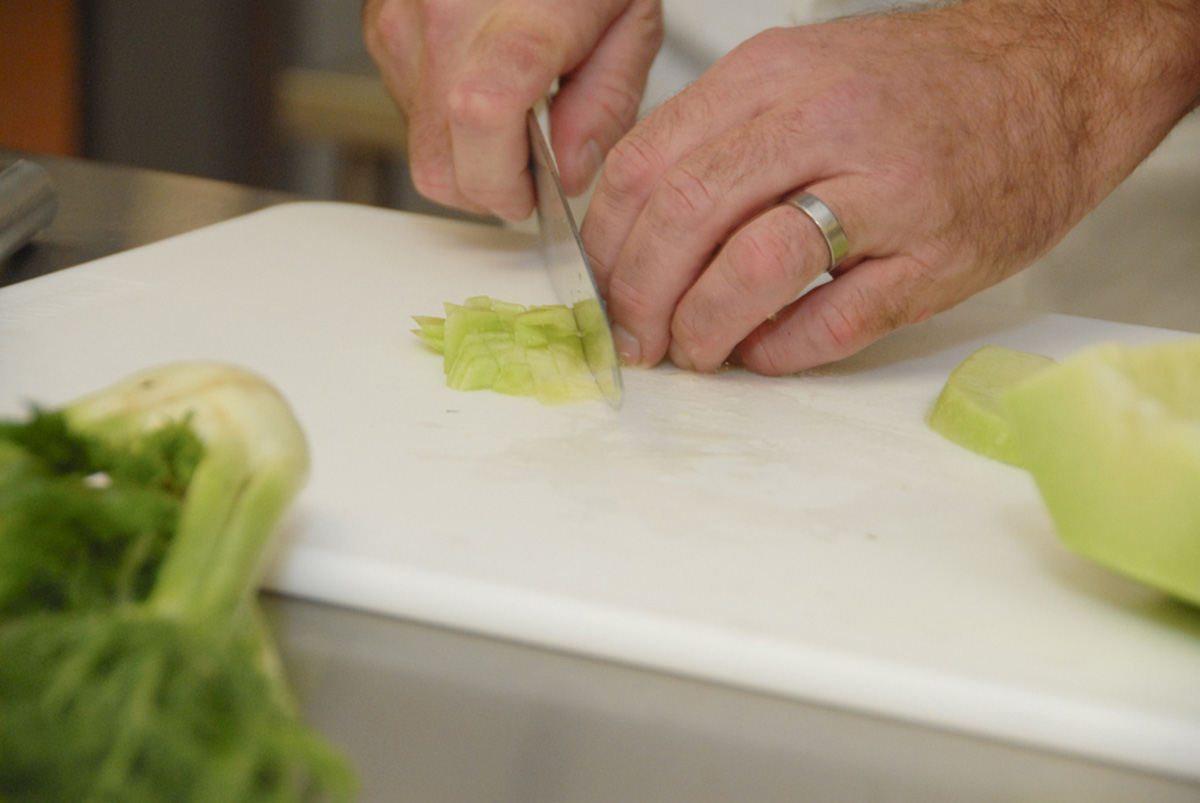Table of Contents
Many people who have cancer don't actually die from cancer. About 1/3 of cancer patients actually die from the complications of poor nutrition, made more difficult by the fact food tastes bad. Here are the basics of making food taste better during cancer.
Even after the risk of nausea and vomiting are over, many cancer patients find that their treatments have robbed them of their sense of taste. You may not be able to make food taste as good as it used to, but there are things you can do to make food taste better so you eat enough to recover from your treatment.

- The more different flavors you have in a single dish, the more you will want to eat it. Be sure you have sweet, salty, sour, and even bitter flavors in your cooking in as many different ways as possible.
- A variety of colors on your plate increases appetite.
- Serving food on round plates rather than square plates increases your appetite, because the plate fills your field of vision.
- Don't try to eat foods that you ate on days you had a bad reaction to chemotherapy. You will have a body memory of nausea, vomiting, or diarrhea associated with the food.
- Dry, crunchy foods aren't a good idea if you have mouth sores or mucositis from radiation because they can irritate the lining of the mouth. Avoid them.
- Moist foods fill you up more than dry foods. Applesauce, for example, will help you feel full longer than apple crisp. If you are having problems with bloating or vomiting, you want to eat dry foods like chips and crackers, but if you are having problems with a rumbling stomach becaue you just can't eat enough, moister foods will stay in your stomach longer. Slowly simmered soups stay in your stomach longer than almost any other food.
- If you don't mouth sores or mucositis (most common after head and neck radiation), take your food with a literal grain of salt. The salt on your food stimulates salivation, which carries the flavors of food all over your tongue, maximizing your sensation of taste.
- If you have a continuing problem with metallic aftertaste, add a little lemon or vinegar to your food. Acid tastes can cancel out metallic and bitter tastes of food.
- Make sure sweet foods come in contact with the tip of your tongue. You actually have receptors for sweet tastes all over your tongue, but they are concentrated on the tip of your tongue, and you enjoy sweet flavors more if you let them rest on the front part of your tongue momentarily before chewing and swallowing.
- Use seaweed, dulse, or kombu to add a savory, umami flavor to soups, broths, and stews when you can't add meat.
- Use ginger in juices, lemonade, fruit dishes, and stirfries to prevent nausea. If you don't use dried, pickled, or candied ginger, be sure to mince it very fine before serving.
- Add turmeric to curries, chili, soups, cauliflower, and potato dishes in tiny amounts for its antioxidant power. The curcumin in turmeric may minimize lingering side effects of chemotherapy and also fight cancer.
See Also: Anti-Cancer Diet: Cancer Fighting Foods and Spices
And don't try to diet during recovery from cancer. You still need to manage diabetes and similar chronic diseases, but cancer recovery is not a good time to try to lose weight.
- Rebecca Katz, Max Edelson
- The Cancer-Fighting Kitchen. Nourishing, Big-Flavor Recipes for Cancer Treatment and Recovery Ten Speed Press. 2010.
- Photo courtesy of Nicole Abalde by Flickr : www.flickr.com/photos/nicoleabalde/7191104180
- Photo courtesy of Port of San Diego by Flickr : www.flickr.com/photos/portofsandiego/8248734396


Your thoughts on this